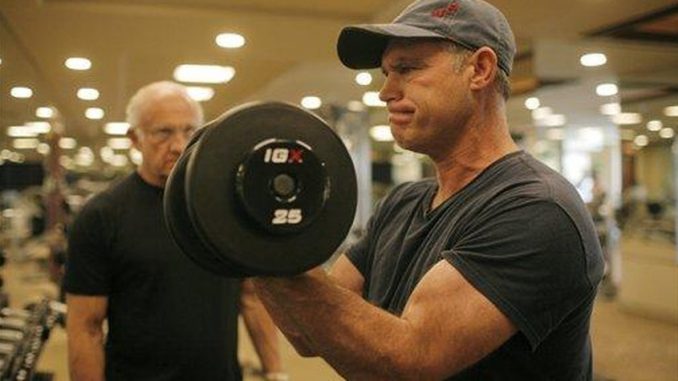
I used to work out. Not consistently. Not hardcore training. But I belonged to a gym for quite a while and I would go. For a while about 10 years ago I was even in pretty decent shape (for me). I ran a 7 minute mile and could bench a bit more than my own weight. It wasn’t anything that would impress a real gym rat but I felt good and I liked doing it.
And then I just stopped. I’m not even sure why but part of it was it took up a lot of time. Now it has been years since I even set foot in a gym. I’ve been thinking about going back, partly inspired by my two daughters, both of whom have gym memberships and do some sort of real workout every day.
But, more than anything, what holds me back is the time commitment. Getting dressed, driving to the gym, working out, driving back, showering. It’s a 90 minute commitment which you need to make several times a week. And since you’re paying for the privilege you have to actually go or you’re just throwing money down the drain.
All of that to say, I was pretty intrigued by this NY Times piece that popped up yesterday about some new research that suggests all you really need to do to see health and strength benefits is 4 seconds of real effort. Well, that’s not quite true. You have to repeat those four seconds a couple dozen times with brief breaks in between but it still adds up to about 10-15 minutes total per workout.
A mere four seconds of all-out exercise, repeated two or three dozen times, could be all many of us need to build and maintain our fitness, strength and physical power, according to an inspiring new study of the potency of super-quick workouts. The findings expand on other, recent studies showing that four-second interval workouts beneficially affect metabolism and muscles in adults of various ages…
Most exercise scientists agree an interval should strenuously stimulate and pressure our hearts, lungs and muscles, prompting them to remodel themselves in beneficial ways. But such intense workouts should not be so draining we cannot finish the intervals or wish afterward never to work out again. Each interval should be, in essence, as grueling and as tolerable as possible.
For Edward Coyle, a professor of kinesiology and health education at the University of Texas at Austin, that meant an interval sweet spot of about four seconds. He and his colleagues arrived at that eyeblink number after studying fit, professional athletes.
Okay, it sounds pretty good but there is a catch here. The professor who did the study is an investor in the special flywheel bikes used in the study. So, pretty clearly he stands to benefit from claims that this represents a wonder-exercise. That said, the professor doesn’t appear to be claiming you need one of his bikes to see similar results. Any exercise you can push yourself on for intervals of 2-4 seconds a couple dozen times (then repeat that three times a week) should do it. This is the professor’s third study of these short-interval workouts and the most recent one involved regular people, not athletes.
For the new study, which was published in July in Medicine & Science in Sports & Exercise, Dr. Coyle and his colleagues persuaded 11 healthy, active young men and women to come to the lab and push themselves through 30 repetitions of the four-second, all-out efforts on the bikes, with at least 15 seconds of rest in between. The volunteers completed three sessions of these intervals each week for eight weeks, for a total of 48 minutes of exercise over the two months. They did not otherwise exercise during this time.
In that time, they added 13 percent to a crucial aerobic fitness measure and 17 percent to their muscular power, measured by how many watts they produced while pedaling the bike, the researchers found.
Note that the 48 minutes of exercise mentioned is just the 4 seconds of hard effort. That doesn’t include the rest time in between. If you add that back in you’re talking about less than 4 hours of exercise in two months.
Maybe a different approach could achieve those same results in half the time (or less). Still, the idea of getting measurable results with such a small time investment is pretty appealing. My best excuse for not getting back into shape is fading away.
Via Hot Air
